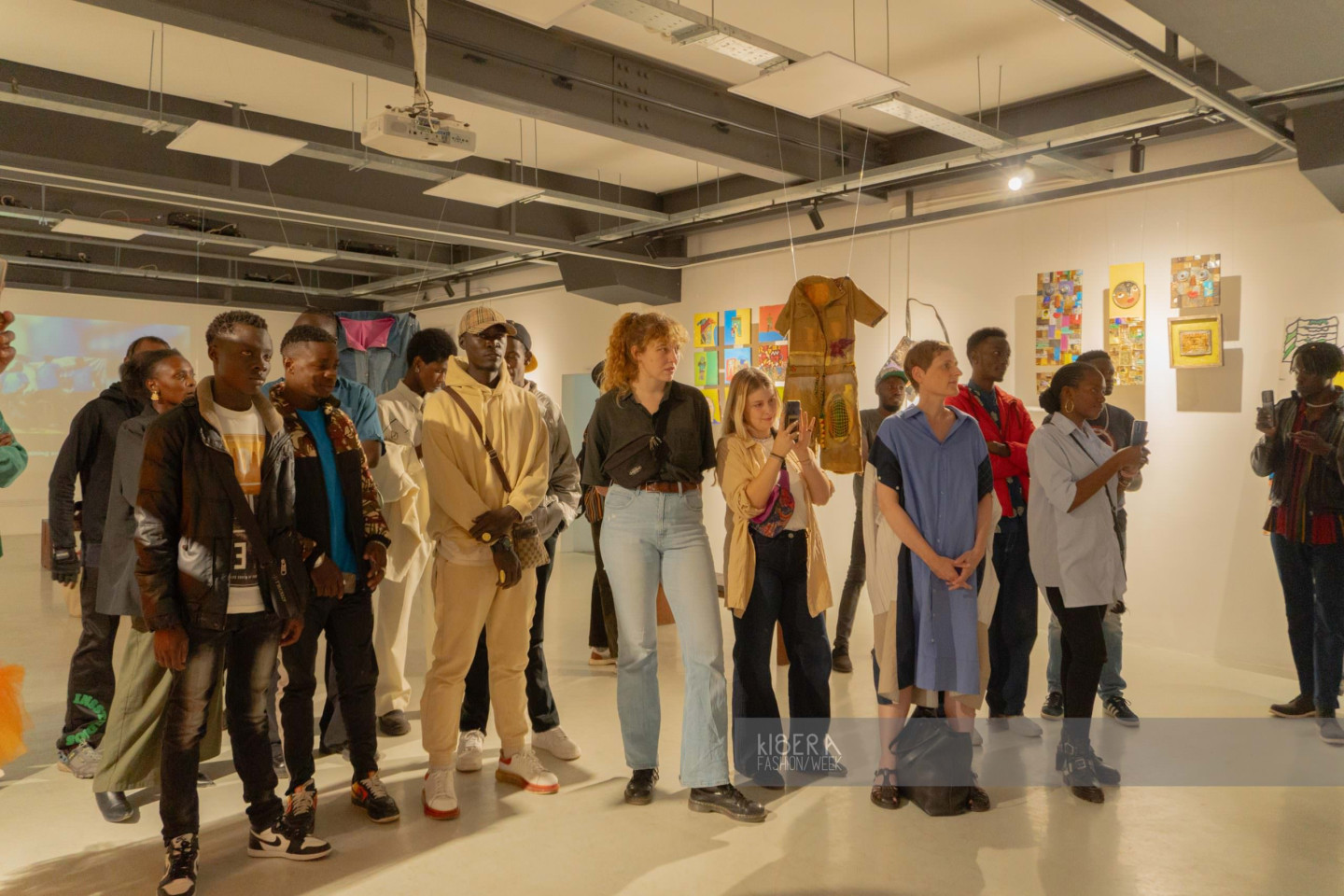
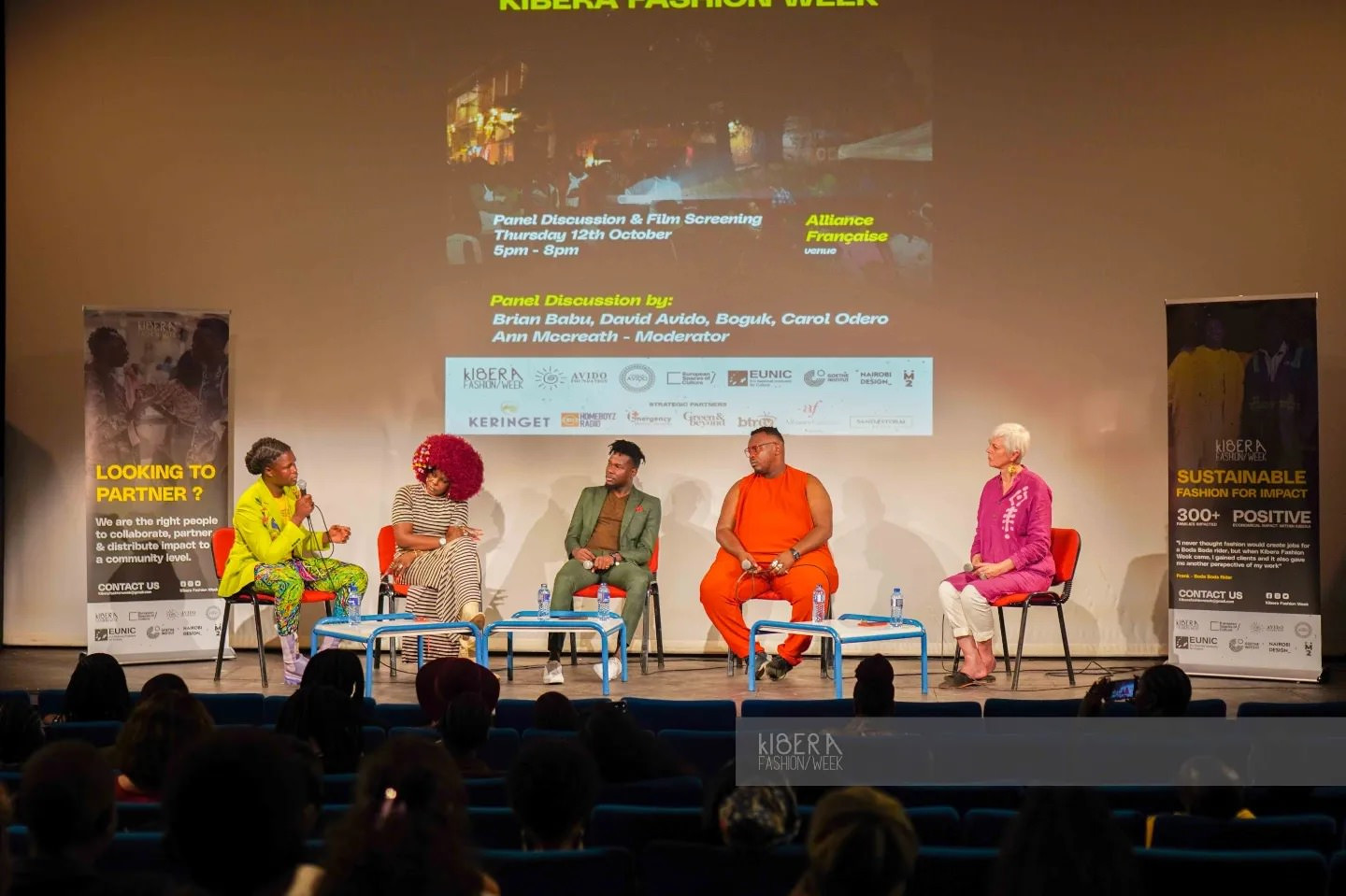
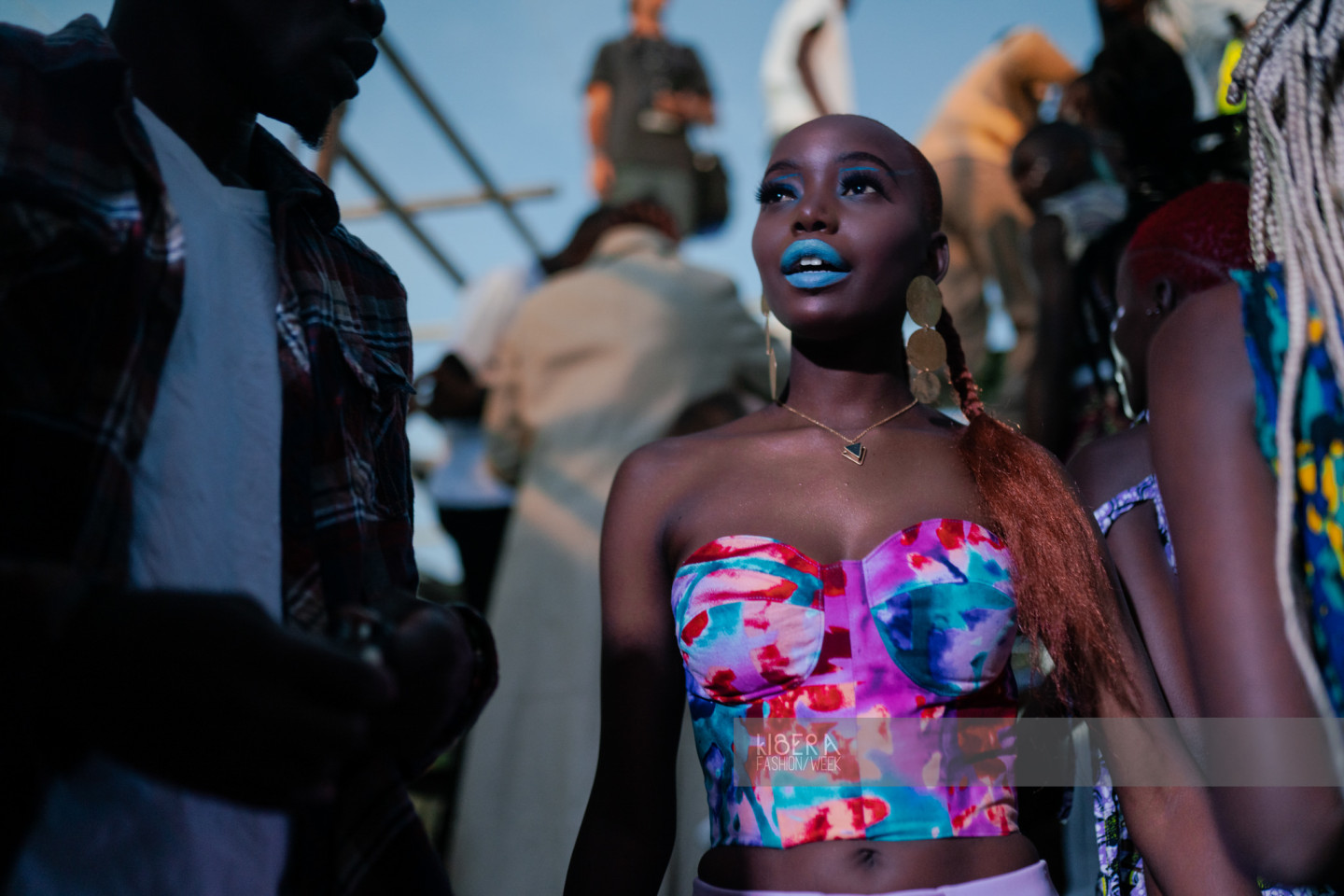
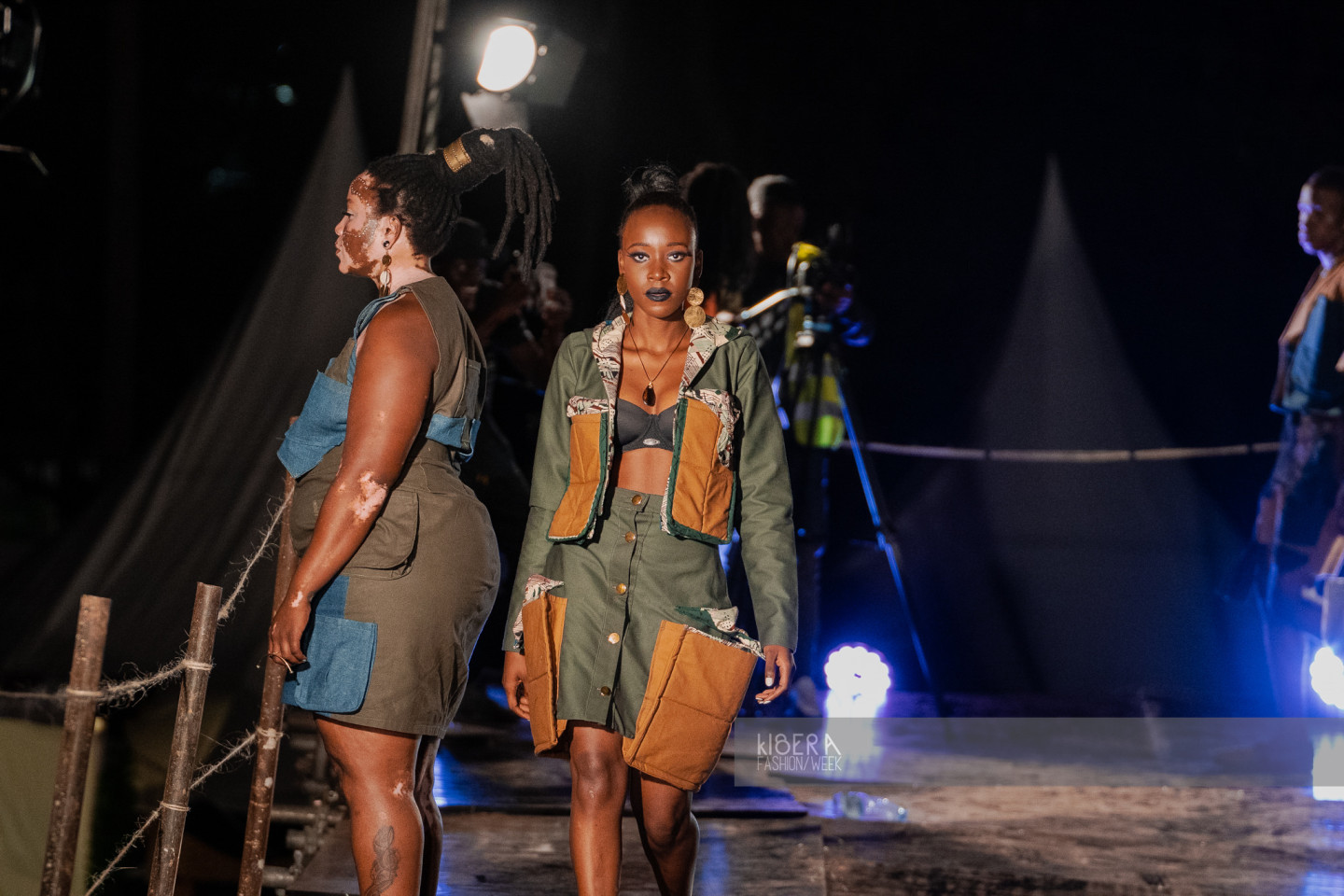
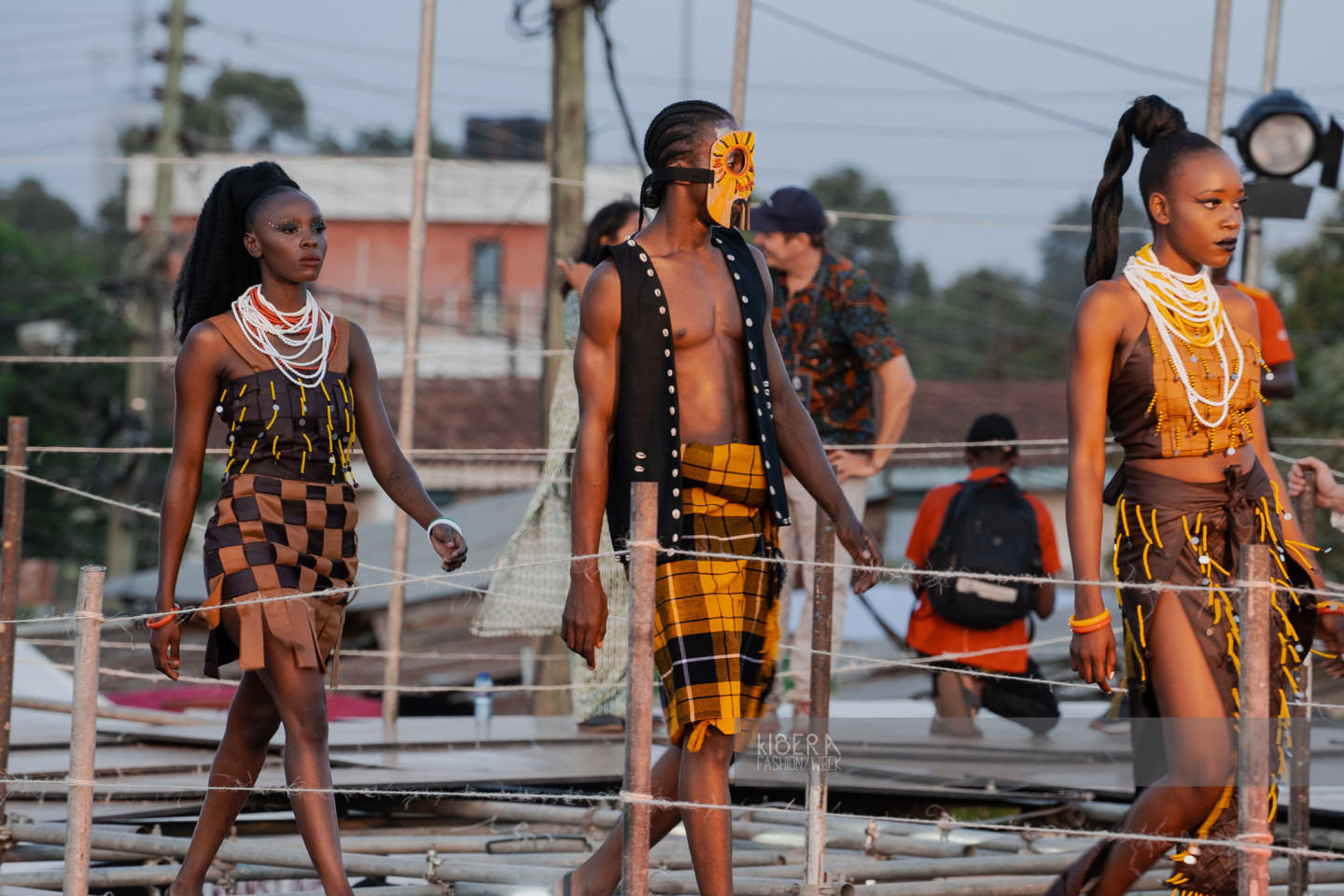
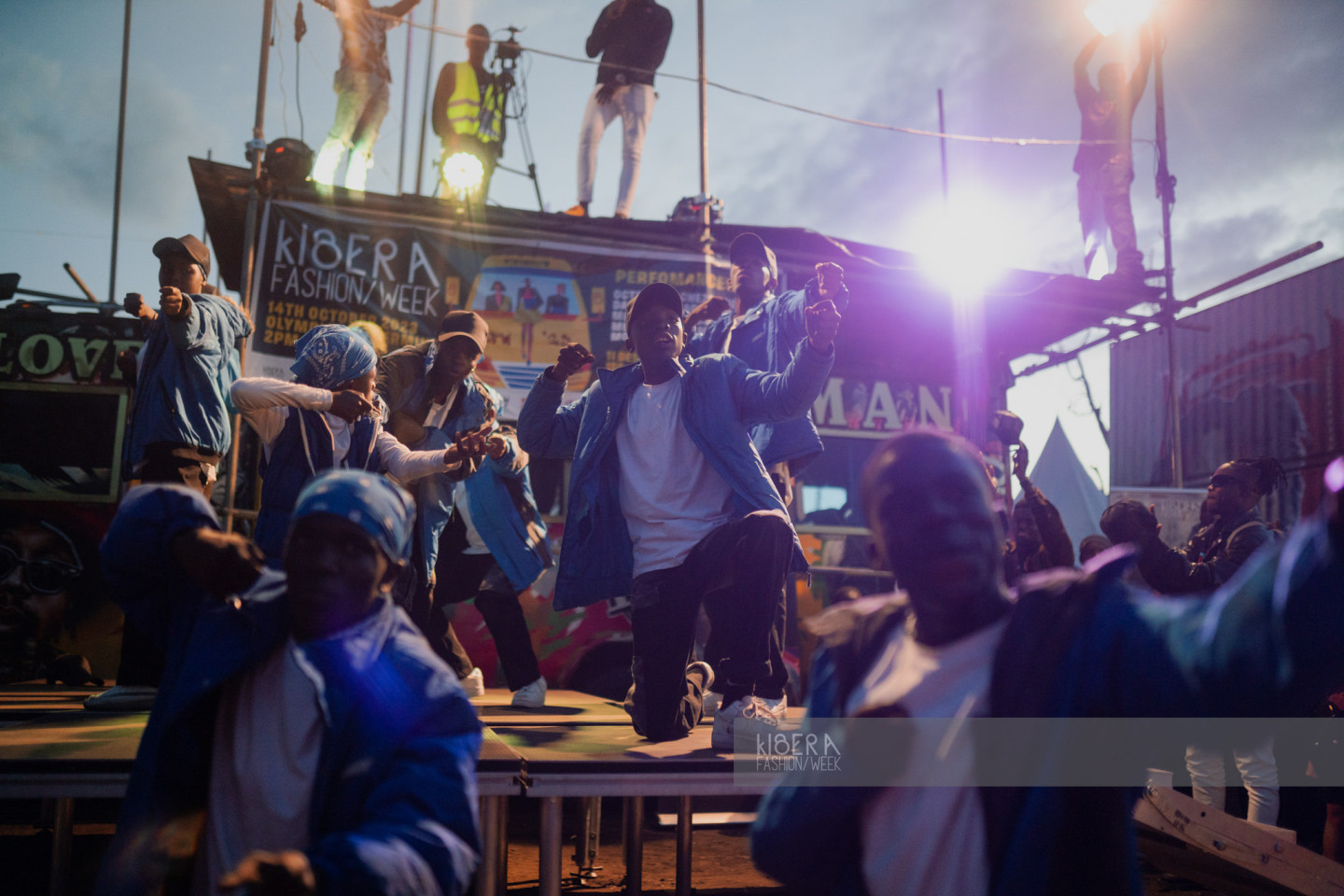
Kibera Fashion Week: Putting Kibera on the creative map
Kibera Fashion Week held its second edition with the support of European Spaces for Culture in the heart of Kibera.






Building on the success of the first edition of the project in November 2022, Kibera Fashion Week participated in Nairobi Design Week in March 2023 and organised several outreach activties in the area of Nairobi, aimed at sensitising consumers on sustainable consumption as well as promoting the local fashion industry, including film screenings, panel talks, and workshops. Finally, this community-driven initiative took place in the form of Kibera Fashion Week on 9-14 October in Kibera, a neighbourhood of the city of Nairobi in Kenya. The event was a grand showcase of local creativity and a think tank for sustainability involving and open to the entire community while reaching a global audience.
The week included visits to local studios, an exhibition, a panel talk and a film screening and ended with the main showcase of the week at the Olympic Bus Terminus in Kibera, with a fashion runway show and musical performances. The highly successful event is reflected in multiple news outlets covering the outcomes of the project, such as TV5 Monde, The Guardian, BBC, and taz.
Why Kibera matters
While Kibera is often portrayed as a place of hopelessness in need of help and so-called “development aid”, it is in fact a diverse metropolis, booming with creativity and constantly evolving and innovating. The project firmly believes that the world can learn a lot from the people of Kibera and that they possess the skills to become pioneers in a sustainable and ethical creative industry. Kibera Fashion Week will become a platform for the community to redefine fashion, share new methods for sustainability and bring together stakeholders from around the world to challenge unethical and exploitative consumption.
There is no barrier if you believe in your talent and take the next step. I want to encourage and create beauty, where people don’t expect it.
David Avido, initiator of the project
Open Studios
On 9 and 10 October, the project opened its studio doors in Kibera, for visitors to get to know the designers from Kibera in their own workspace. The 11 designers selected for the 2023 edition of Kibera Fashion Week are deeply immersed in the local community of Kibera, and over the last months of preparation came together for in-depth training emphasizing peer-to-peer learning and knowledge sharing. The design work places a strong emphasis on sustainability, ethical production practices, and inclusivity. Many of the designers are incorporating and portraying local issues for social justice in their design, such as youth empowerment, unemployment, queer identities and freedom of expression. Inspiration is drawn from local and traditional craftsmanship, tribal design, modern popculture, the queer ballroom scene, and more.
We as youths have big ideas and big plans but we never get the opportunities to bring them to life due to lack of employment and when one gets one, it’s never what you want to do hence no full potential is shown, lack of self-esteem and courage to go on. My collection simply shows the big ideas we have - pockets - that we never get the chance to show and it never get to be appreciated - the empty pockets,
Hellen wanjiru Njengam, Designer of 'Pocket Pennie’s swerve'
The collection is inspired by black people and just our melanin in its various shades. An appreciation of how beautiful our melanin is and how important it is. Youth as our audience take pride in who they are.
Joyleen Chepngetich, Designer of 'Melanin'
KFW Edition I Exhibition
From 11 to 15 October, the Goethe-Institut in Kenya held an exhibition, showcasing collections from the first edition of Kibera Fashion Week in 2022, as well as creative installations that have been happening throughout 2023. The exhibition was part of the project's effort to create a platform for nnovative fashion designers from East Africa to showcase their collections and celebrate a shared commitment to change. A notable aspect of the event was the strong focus on promoting sustainable design approaches, with designers demonstrating their dedication to environmentally friendly creations.
Sustainable Fashion Panel Talk
On 12 October, hosted by Alliance Française in Nairobi, the project organised a film screening of the previous edition of Kibera Fashion Week and a panel talk. Joined by project organisers and local fashion and sustainabilty experts, the panel addressed questions on sustainability and inclusivity, sustainable design practices, as well as potential business strategies for fashion entrepreneurs.
Sustainable Beyond the Runway
The Kibera Fashion Week ended with the grand showcase of all 11 designers' work, modeled by 20 models. Sustainability was not only visible in the over 100 garments presented, but engrained in the entire philosophy of the event. The designers emphasized sustainable and environentally friendly fabrics and locally-sourced materials for the designs, reducing the environmental impact associated with materials from far-off places. They also minimized textile waste through efficient patternmaking and creative reuse of materials. The ethics of sustainable fashion also extended to the production stage, ensuring fair labor conditions and equitable wages for workers involded in creating the garments.
The event served not only as a fashion show but also as an educational platform, sparking conversations about sustainability, inclusivity, and ethical fashion practices. By placing a strong emphasis on promoting local talent, including models, performers, and designers, the project contirbuted to nurtuting the growth of the local fashion industry in Kenya.
As creatives working together, we realized that there was a need to reflect on how the industry we were in impacted our environment.
Mariah Kwamboka, Designer of 'Bokka'
Impact on the local community
Kibera Fashion Week worked closely together with the local community of Kibera, ensuring the involvement of local artists and organisations, with the aim to promote social inclusion and economic opoortunities for community members.
I never thought fashion would create jobs for a Boda Boda rider, but when Kibera Fashion Week came, I gained clients and it also gave me another perspective of my work.
Frank, Boda Boda rider
